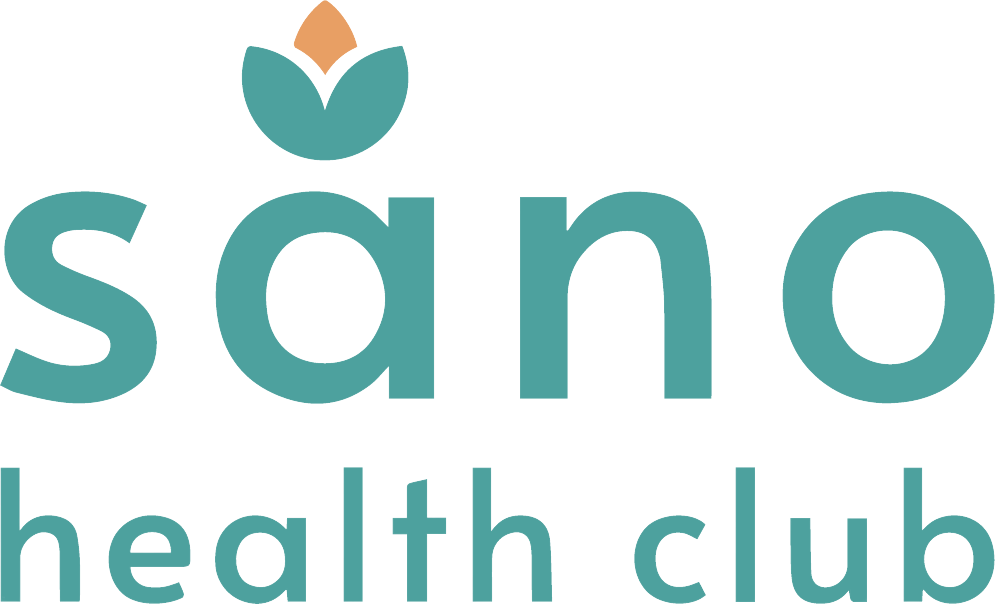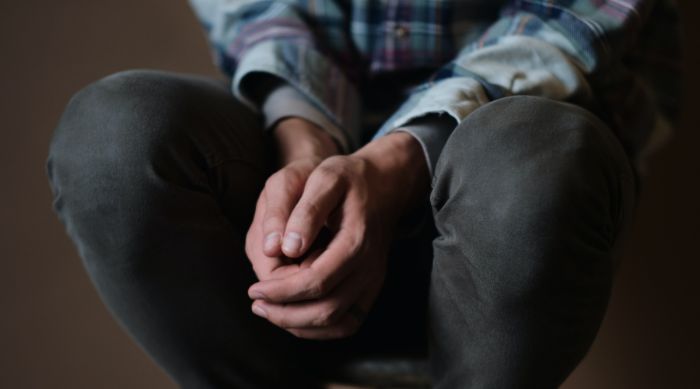Low sex drive (low libido) in men can lead to disinterest in sex, erectile dysfunction, and lack of self-esteem.
Don’t worry! There are treatments for low sex drive, but first you must understand the underlying cause of low libido.
Should you be concerned about low sex drive? If you’re experiencing low sex drive, you don’t have to be concerned. The causes are likely treatable.
11 Common Causes of Low Libido
What are the contributing factors to low male sex drive? The contributing factors to low male sex drive include low testosterone levels, sexual problems, legal or illegal drug use, and medical history.
Below, we detail the most common causes of low libido, some of which may surprise you.
Low testosterone
Testosterone is directly linked to sex drive, erectile function, and men’s health.
This sex hormone definitely affects libido, but scientists are generally unsure why. Low testosterone levels (low T) alone do not always reduce sex drive, but low T certainly increases risk of low sex drive.
How do I know if I have low testosterone? You know if you have low testosterone if you’re experiencing low T symptoms like low sex drive, excess breast tissue, mood changes including depression or insomnia. But the only way you can know you have low T for certain is if you get a blood test that measures your testosterone levels.
Hypogonadism
Hypogonadism is a chronic condition wherein the gonads produce significantly less sex hormones. It causes low testosterone in males, and consequently a lower sex drive. Because it is a chronic condition, people with hypogonadism may have a lower-than-average sex drive all the time without noticing much of a difference.
Age
As men age, their levels of testosterone naturally decrease, and their sex drive starts to diminish. Some call it “male menopause”.
It is a widely accepted fact of biology that the body slows down as people get older. Testicle function, hypothalamus, and the pituitary gland all slow down in older men, therefore less testosterone is produced.
What is the average age a man’s sex drive declines? Testosterone levels start to dip slightly once you turn 30, but this sex drive hormone drops considerably every year after you turn 40. Low libido is noticeable in most men around age 70 although a majority of American men remain sexually active well into old age.
Chronic illness
There are chronic health conditions whose symptoms include low libido, such as:
- Obstructive sleep apnea
- High blood pressure
- High cholesterol
- Blood flow problems
- Chronic pain syndrome
- Type 2 diabetes
- Obesity
- Thyroid problems
Each condition has its own root causes and most effective treatments.
Depression
Depression is a serious mental health problem which affects every aspect of your life. It can make you lose interest in activities you once found pleasurable, like sexual activity. In fact, over 60% of men suffering from depression report sexual dysfunction, including low sex drive.
To make matters worse, some antidepressant medications lower sex drive further — SSRIs, specifically.
Stress
Stress reduces sexual arousal and desire in both men and women. When we’re stressed, our bodies release the hormone cortisol, which can impact the reproductive system. For men, chronic stress can mean lowered sex drive and decreased sperm motility.
Relationship issues
Relationship problems can cloud your mind during sexual relations, or even prevent proper sexual function. Problems within a relationship, such as disagreement over money or family planning, can impact sexual performance and libido.
Also, “dissatisfaction with sexual quality of life” leads to further lowered libido. It’s a vicious cycle.
On the other hand, marriage and coparenting are both known to reduce testosterone, even when these relationships are healthy. Generally, married men and fathers of infants produce less testosterone and may therefore experience lower libido.
Sedentary lifestyle
A sedentary lifestyle increases risk of both obesity and low testosterone. An active lifestyle may decrease risk of obesity and increase testosterone levels.
Even if you don’t exercise for 30 minutes 5 days a week, an uptick in regular physical activity can reduce your risk of obesity and low sex drive, such as walking the dog, vacuuming more often, or simply parking in the back of a parking lot to get a little extra exercise.
Alcohol
Excessive alcohol consumption inhibits testosterone production, leading to low sex drive — especially with prolonged consumption of alcohol. Alcohol also contributes to obesity, sleep quality, and relationship issues, which are all also risk factors for low libido.
On the other hand, low doses of alcohol increase testosterone levels in the short term.
Smoking
Smoking tobacco leads to a whole host of health complications, such as cancer, lung disease, and oral disease.What is considered less often is the impact smoking has on sexual function. Erectile dysfunction and low libido are both linked with smoking cigarettes.
For the sake of your health and the health of the people around you, quit smoking. Check out this official guide to quitting smoking.
Drug use
Using illicit drugs like heroin and cocaine can lower your sex drive, especially with long-term use.
It has long been known that heroin reduces testosterone levels, as well as libido. Cocaine is even worse for your sexual desire. Although withdrawal can be tough, no longer using these illicit drugs can greatly improve your health, including sex drive.
Some medications
Certain prescription medications can reduce sex drive in men. Even if these medications help with certain medical conditions, they may also lead to testosterone deficiency and disrupt sexual activity.
Medications which could reduce sex drive include:
- Opioids
- Heart failure medicine
- Blood pressure medication
- Cholesterol medicine
- SSRI antidepressants
- Histamine blockers
- Anabolic steroids
- Corticosteroids
- Antipsychotics
- Anti-anxiety medication
- Anticonvulsants
- Ketoconazole, an antifungal
- Sex hormone medication
- Hormones to treat prostate cancer
- Radiation therapy and chemotherapy
Side Effects of Low Sex Drive
Low sex drive is often accompanied by:
- Erectile dysfunction
- Premature ejaculation
- Delayed ejaculation
- Anxiety
- Low self-esteem
Managing Your Lowered Libido
Don’t worry. There are effective ways to safely increase your libido and improve your sex life.
How do I get my sex drive back? Here are the most common treatments and lifestyle changes which can help get your sex drive back:
- Testosterone replacement therapy can re-balance testosterone hormone levels and restore sex drive.
- Sex therapy is where you (and optionally your partner) see a sex therapist about sexual problems and any causal or consequent relationship issues.
- Supplements may help increase libido, such as ginkgo biloba. Garlic and beetroot help with blood flow, which may promote easier erections.
- Viagra helps men maintain an erection during sexual activity. This boost of confidence and testosterone can increase sex drive.
- Quitting smoking and drinking may help increase your sex drive. You should also stop using any illegal drugs.
- Reduce your stress to lower your cortisol levels, which may improve your hormonal health.
- Exercise regularly to increase testosterone levels, reduce risk of obesity, fight depression, and improve your sex drive.
When to See a Doctor
If you experience unexplained low sex drive for an extended period of time, you should see a healthcare professional right away for a diagnosis. If you and your doctor determine the root cause of your low libido, treatment can follow.
Schedule a discovery call with one of Sano Health Club’s care team members to learn about Sano’s practice and to sign up for our exclusive membership. If you’re not ready to book with us, join our free mailing list and subscribe to science-based articles on cutting-edge health info.
Sources
- Golan, R., Scovell, J. M., & Ramasamy, R. (2015). Age-related testosterone decline is due to waning of both testicular and hypothalamic-pituitary function. The Aging Male, 18(3), 201-204.
- Shindel, A. W., & Lue, T. F. (2021). Sexual dysfunction in diabetes. Endotext [Internet].
- Thakurdesai, A., & Sawant, N. (2018). A prospective study on sexual dysfunctions in depressed males and the response to treatment. Indian journal of psychiatry, 60(4), 472–477.
- Hamilton, L. D., & Meston, C. M. (2013). Chronic stress and sexual function in women. The journal of sexual medicine, 10(10), 2443-2454.
- Ilacqua, A., Izzo, G., Emerenziani, G. P., Baldari, C., & Aversa, A. (2018). Lifestyle and fertility: the influence of stress and quality of life on male fertility. Reproductive biology and endocrinology : RB&E, 16(1), 115.
- Moyad, M. A., & Park, K. (2012). What do most erectile dysfunction guidelines have in common? No evidence-based discussion or recommendation of heart-healthy lifestyle changes and/or Panax ginseng. Asian Journal of Andrology, 14(6), 830.
- Mark S. Allen & Annelil E. Desille (2017) Health-Related Lifestyle Factors and Sexual Functioning and Behavior in Older Adults, International Journal of Sexual Health, 29:3, 273-277.
- Emanuele, M. A., & Emanuele, N. V. (1998). Alcohol’s effects on male reproduction. Alcohol health and research world, 22(3), 195.
- Ramos-Vera, C., Serpa Barrientos, A., Calizaya-Milla, Y. E., Carvajal Guillen, C., & Saintila, J. (2022). Consumption of Alcoholic Beverages Associated With Physical Health Status in Adults: Secondary Analysis of the Health Information National Trends Survey Data. Journal of primary care & community health, 13, 21501319211066205.
- Sarkola, T., & Eriksson, C. P. (2003). Testosterone increases in men after a low dose of alcohol. Alcoholism: Clinical and Experimental Research, 27(4), 682-685.
- Biebel, M. G., Burnett, A. L., & Sadeghi-Nejad, H. (2016). Male Sexual Function and Smoking. Sexual medicine reviews, 4(4), 366–375.
- Mirin, S. M., Meyer, R. E., Mendelson, J. H., & Ellingboe, J. (1980). Opiate use and sexual function. The American journal of psychiatry.
- Kopetz, C. E., Reynolds, E. K., Hart, C. L., Kruglanski, A. W., & Lejuez, C. W. (2010). Social context and perceived effects of drugs on sexual behavior among individuals who use both heroin and cocaine. Experimental and Clinical Psychopharmacology, 18(3), 214.
- Rizk, P. J., Kohn, T. P., Pastuszak, A. W., & Khera, M. (2017). Testosterone therapy improves erectile function and libido in hypogonadal men. Current opinion in urology, 27(6), 511.
- Mashhadi, Z. N., Irani, M., Mask, M. K., & Methie, C. (2021). A systematic review of clinical trials on Ginkgo (Ginkgo biloba) effectiveness on sexual function and its safety. Avicenna Journal of Phytomedicine, 11(4), 324.
- Arazi, H., & Eghbali, E. (2021). Possible effects of beetroot supplementation on physical performance through metabolic, neuroendocrine, and antioxidant mechanisms: a narrative review of the literature. Frontiers in Nutrition, 221.
- Belvederi Murri, M., Ekkekakis, P., Magagnoli, M., Zampogna, D., Cattedra, S., Capobianco, L., … & Amore, M. (2019). Physical exercise in major depression: reducing the mortality gap while improving clinical outcomes.Frontiers in psychiatry, 9, 762.


